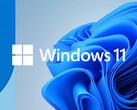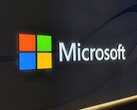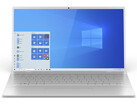Microsoft recently published a blog post highlighting the benefits of a Windows 10 upgrade to Windows 11. The company explains that users will enjoy a more secure OS with a streamlined UI and enhanced compatibility with AI-driven apps. Still, the statement that "Windows 11 PCs are up to 2.3x faster than Windows 10 PCs" is drawing the most attention. Critics soon realized that a misleading benchmark was the basis of the claim.
The article references a Geekbench 6 multi-core test in its endnotes. However, the comparison involves different generations of Intel processors. Windows 10 PCs with 6th, 8th, and 10th-generation CPUs are pitted against Windows 11 systems with 12th and 13th-generation chips. As PC Gamer notes, some of the CPUs are as much as nine years older than Intel's latest releases.
The December 2024 benchmark includes a caveat that performance will vary depending on the device and settings. Even so, observers argue that a more valid comparison would use Windows 10 and Windows 11 PCs with identical hardware. Unfortunately, for Microsoft, most such tests reveal only small performance gains with the newer OS.
Microsoft may be becoming desperate to convince holdouts to agree to a Windows 10 upgrade. Gamers would jump at the chance for 2.3x better performance, but they are savvy enough to know that the new OS isn't as revolutionary. Also, these users complain that a bloated Windows 11 emphasizes features that don't lead to improved frame rates.
For buyers who don't refresh their PC's hardware often, the upgrade also comes with significant expenses. Customers with a valid Windows 10 license can transition to Windows 11 at no additional cost. On the other hand, Windows 11 requirements rule out older CPUs that don't support TPM 2.0 and Secure Boot. As a result, some buyers end up purchasing new desktops or laptops with Windows 11 pre-installed.
Microsoft recently announced the Extended Security Updates (ESU) program. This reprieve will extend Windows 10 support for another year. Otherwise, security updates will end on October 14th, 2025, potentially leaving PCs vulnerable to malware.































